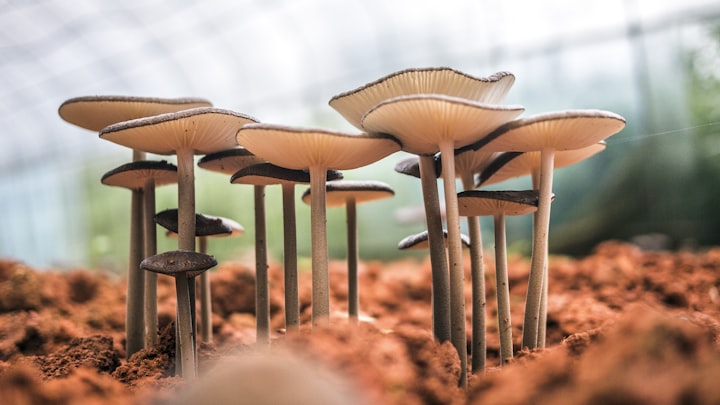Cheating Death for Centuries
The Secrets of Longevity in Fungi!

The Secrets of Longevity in Fungi!
Fungi, often overlooked in the pursuit of understanding longevity, have emerged as fascinating organisms with exceptional lifespans. While humans strive to unlock the secrets of extending their own lives, the humble fungi have been silently mastering the art of longevity for millions of years. Recent scientific studies have shed light on the remarkable mechanisms behind fungal longevity, revealing insights that could have profound implications for human health and aging. In this article, we delve into the secrets of longevity in fungi and explore what we can learn from these resilient organisms.
1. Adaptability: Fungi thrive in diverse environments, ranging from the deepest forests to the highest mountaintops. Their remarkable adaptability is a key factor in their longevity. Fungi possess an extensive arsenal of genes that allow them to respond to changing conditions, ward off threats, and repair damage. These genetic adaptations enable fungi to withstand harsh environments and survive for extended periods.
2. Stress response: Fungi have evolved sophisticated stress response systems that play a vital role in their longevity. When faced with adverse conditions such as nutrient scarcity, extreme temperatures, or toxins, fungi activate stress response pathways to protect themselves. These pathways trigger various cellular processes, including the production of antioxidants and repair mechanisms, which help fungi withstand the detrimental effects of stress and promote longevity.
3. Replicative immortality: Unlike humans and many other organisms, fungi exhibit a phenomenon known as "replicative immortality." Fungi reproduce through spores, which are genetically identical to the parent organism. Each time a spore germinates, it gives rise to a new fungal individual, effectively resetting the aging clock. This perpetual renewal of genetic material contributes to the remarkable longevity observed in some fungal species.
4. Symbiotic relationships: Fungi form intricate symbiotic relationships with other organisms, such as plants or animals. One of the most well-known symbiotic associations is mycorrhizae, where fungi form mutually beneficial partnerships with plant roots. These symbiotic interactions enhance nutrient uptake and overall health, potentially extending the lifespan of both the fungi and their host organisms.
5. Secondary metabolites: Fungi produce a vast array of secondary metabolites, which are compounds not directly involved in their growth or reproduction. Some of these metabolites possess remarkable properties, including antimicrobial, anti-inflammatory, and antioxidant activities. These bioactive compounds not only help fungi survive in challenging environments but also have the potential to benefit human health. Scientists are actively studying these metabolites for their therapeutic applications in aging-related diseases.
6. Genetic and epigenetic factors: Fungal longevity is influenced by a combination of genetic and epigenetic factors. Genetic variations within a fungal population can affect lifespan, as certain genes may confer increased resistance to stress or enhance DNA repair mechanisms. Epigenetic modifications, such as changes in DNA methylation or histone modifications, also play a role in regulating gene expression and lifespan in fungi.
Studying the secrets of longevity in fungi offers valuable insights into the fundamental mechanisms of aging and has the potential to pave the way for innovative strategies to promote healthy aging in humans. By unraveling the genetic and molecular pathways that underpin fungal longevity, scientists can identify novel targets for therapeutic interventions and develop anti-aging strategies based on nature's own blueprint.
As our understanding of fungal longevity deepens, it becomes clear that these resilient organisms hold remarkable lessons for us to learn. By embracing the adaptability, stress response mechanisms, and symbiotic relationships exemplified by fungi, we may uncover novel ways to enhance our own longevity and lead healthier lives. Nature has long been the greatest teacher, and in the realm of longevity, fungi are proving to be wise masters of the craft.





Comments
There are no comments for this story
Be the first to respond and start the conversation.